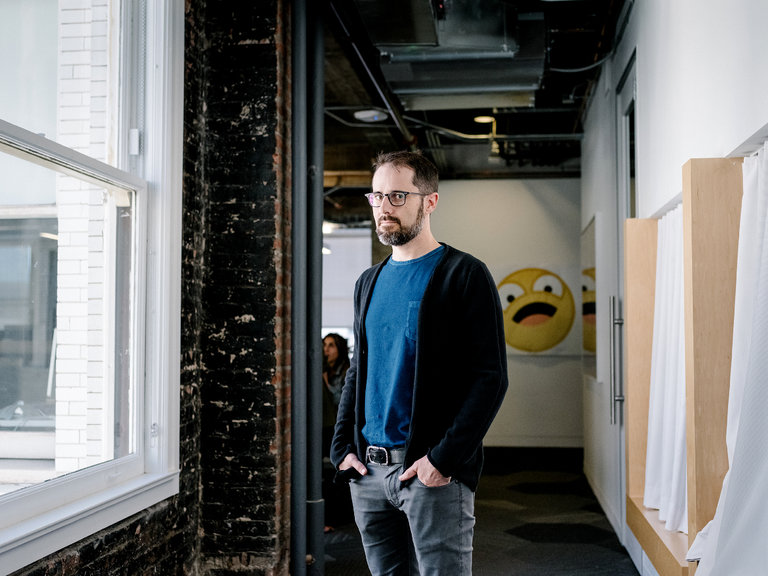
“I thought once everybody could speak freely and exchange information and ideas, the world is automatically going to be a better place,” Evan Williams says. “I was wrong about that.” CreditJason Henry for The New York Times
What is the purpose of the internet? Should it be a place where everyone can speak freely and exchange information and ideas? Or, does that kind of open forum end up privileging the loudest and most extreme voices? Does it naturally lead to trolling, fake news and click bait?
What changes would you like to see on the internet, and why?
In “‘The Internet Is Broken’: @ev Is Trying to Salvage It,” David Streitfeld writes:
Evan Williams is the guy who opened up Pandora’s box. Until he came along, people had few places to go with their overflowing emotions and wild opinions, other than writing a letter to the newspaper or haranguing the neighbors.
Mr. Williams — a Twitter founder, a co-creator of Blogger — set everyone free, providing tools to address the world. In the history of communications technology, it was a development with echoes of Gutenberg.
And so here we are in 2017. How’s it going, Mr. Williams?
“I think the internet is broken,” he says. He has believed this for a few years, actually. But things are getting worse. “And it’s a lot more obvious to a lot of people that it’s broken.”
People are using Facebook to showcase suicides, beatings and murder, in real time. Twitter is a hive of trolling and abuse that it seems unable to stop. Fake news, whether created for ideology or profit, runs rampant. Four out of 10 adult internet users said in a Pew survey that they had been harassed online. And that was before the presidential campaign heated up last year.
“I thought once everybody could speak freely and exchange information and ideas, the world is automatically going to be a better place,” Mr. Williams says. “I was wrong about that.”
[“Source-ndtv”]
